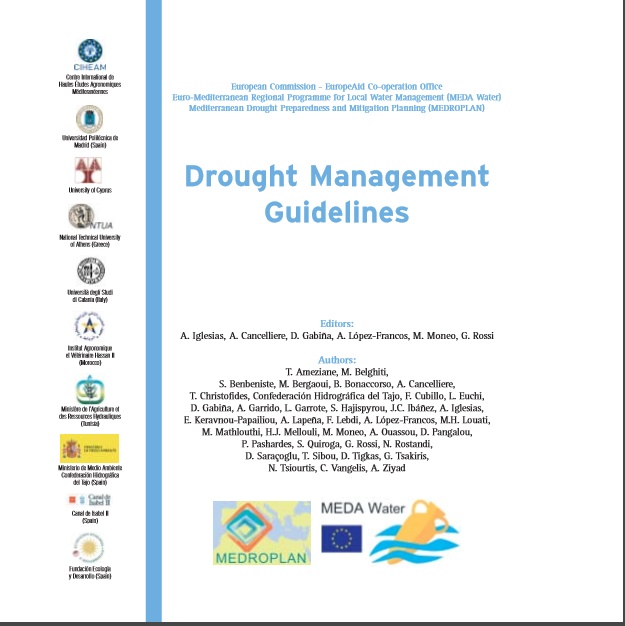
Droughts occur very frequently in the Mediterranean countries, with severe economic and social consequences also connected to the vulnerability of the water supply systems, the agricultural systems and of society in general. Such vulnerability is due to situations of permanent water scarcity, quality deterioration and increasing water demands deriving from population growth, tourist development and irrigation needs. Thus, a policy for drought management is required based on actions aimed to improve drought preparedness and to mitigate impacts of ongoing droughts.
The experiences in the development of agriculture, land and water management plans highlight valuable results in coping with drought risk in many regions. Most of the successful experiences emphasize risk-based management as a critical approach to mitigate the impacts associated with drought in societies with different vulnerabilities. Based on these experiences and the current legislation, management, technology and methods for evaluating risk, the present Drought Management Guidelines for Mediterranean countries, developed within the MEDROPLAN project (Mediterranean Drought Preparedness and Mitigation Planning) provide an effective and systematic approach to develop drought management plans linking science and policy and that can be applied to other regions.